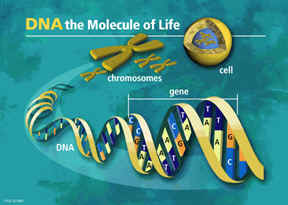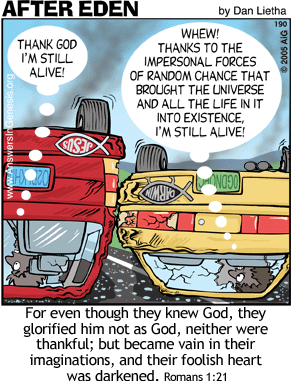 Someone sent me this today… I definitely did the tambourine and tie thing. 🙂
Someone sent me this today… I definitely did the tambourine and tie thing. 🙂
If the first time you saw your uncle’s shot-glass collection, you wondered where he got all those fancy communion cups, then you might be an evangelical.
If you’ve ever forgotten to set your clock back at the end of Daylight Savings Time and your first thought at seeing the empty church parking lot was, “Oh no, I’ve missed the Rapture,” then …
If you’ve lost track of the number of “re-s” you need to add before “re-re-rededicate your life to Christ,” then …
If your favorite painters are Thomas Kinkade and Warner Sallman, then …
If you never watched “Highway to Heaven,” not because it was too preachy, but because it aired on Wednesday nights, then …
If you knew that “Wednesday nights” in the previous joke was a reference to prayer meeting, then …
If you’ve ever tried to calculate the size of a tip in a restaurant based on how it would influence the waitress’s receptivity to the gospel tract you left with it, then …
“I’ve got the joy, joy, joy, joy down in my heart.” If you just shouted, “Where?” then …
If your answer to the question “What Would Jesus Do?” is “He would wear a T-shirt that says, ‘WWJD?’” then …
If you’ve ever played the tambourine while wearing a tie, then …
If you’ve ever informed someone you’ve just met that they deserve to suffer in Hell for eternity, and you said this without a trace of anger, then …
If the last rock concert you went to included an altar call, then …
If you own any clothing or accessories that you regard as “a witnessing tool,” then …
If you think the phrase “a witnessing tool” refers to something that’s good to have rather than someone it’s bad to be, then …
If praying in public makes you talk like a 17th-century Quaker, then …
If two acoustic guitars and a Yamaha DX7 keyboard are your idea of a “rock band,” then …
If you think that there’s nothing supernatural about the bread and wine during communion, but that there is something supernatural about a Ouija board made by Parker Brothers, then …
If you know what burning vinyl smells like, then …
If you have strong opinions about when, precisely, Amy Grant “sold out,” then …
If a sentence beginning “Lord, we just, Lord, want to thank you Lord, for just, Lord, just …” doesn’t strike you as either atrocious grammar or a speech impediment, then …
If you think saying grace loudly is a good way to witness at The Olive Garden, then …
If you’ve ever discussed whether The Flintstones was set before or after Noah’s flood, then …
If your fantasy football team was selected based on the personal testimony of the players, then

 Author: Born in South Wales, Dr. Martyn Lloyd-Jones trained at St. Bartholomew’s Hospital and thereafter practiced as a physician and was assistant to the famous Lord Horder. After leaving medicine in 1927, he became the minister of a Welsh Presbyterian Church in Aberavon, South Wales. He was there until 1938 when he moved to London to share the ministry of Westminster Chapel in Buckingham Gate with the late Dr. G. Campbell Morgan, who retired in 1943. This ministry lasted for 30 years until Dr. Lloyd-Jones retired in August 1968. He then engaged in a wider preaching ministry and in writing until shortly before his death in 1981.
Author: Born in South Wales, Dr. Martyn Lloyd-Jones trained at St. Bartholomew’s Hospital and thereafter practiced as a physician and was assistant to the famous Lord Horder. After leaving medicine in 1927, he became the minister of a Welsh Presbyterian Church in Aberavon, South Wales. He was there until 1938 when he moved to London to share the ministry of Westminster Chapel in Buckingham Gate with the late Dr. G. Campbell Morgan, who retired in 1943. This ministry lasted for 30 years until Dr. Lloyd-Jones retired in August 1968. He then engaged in a wider preaching ministry and in writing until shortly before his death in 1981. Everything that makes up your body requires genetic information. You’ve got hands and feet because your genes code for it. The same is true for any creature—dogs, camels, you name it.
Everything that makes up your body requires genetic information. You’ve got hands and feet because your genes code for it. The same is true for any creature—dogs, camels, you name it. Roman Catholicism has a gospel that does not give peace, because it fundamentally violates the Scriptural teaching on how one is made right with God. Rome has a false gospel that cannot save, hence, I have no reason to abandon the peace I have with God through Christ’s perfect atonement for the treadmill of Rome’s sacramental system of salvation… the person who has embraced the gospel of grace has not only landed his boat on the far side [of the Tiber River], but has torn the boat apart to use the wood as a pulpit from which to proclaim freedom in Christ to those trapped on the other shore. – Dr. James White
Roman Catholicism has a gospel that does not give peace, because it fundamentally violates the Scriptural teaching on how one is made right with God. Rome has a false gospel that cannot save, hence, I have no reason to abandon the peace I have with God through Christ’s perfect atonement for the treadmill of Rome’s sacramental system of salvation… the person who has embraced the gospel of grace has not only landed his boat on the far side [of the Tiber River], but has torn the boat apart to use the wood as a pulpit from which to proclaim freedom in Christ to those trapped on the other shore. – Dr. James White We live in the age of sound bites. Unless a speech is carried live by the television networks, it is condensed to a 5 or 10 second excerpt on a news program (and the words we do hear are often taken out of context). There is no doubt that culturally speaking, our attention span has suffered because of this. The networks are not the only ones to blame here for they are simply giving the people want they want. People want “just the facts” not all the various nuances and subtleties.
We live in the age of sound bites. Unless a speech is carried live by the television networks, it is condensed to a 5 or 10 second excerpt on a news program (and the words we do hear are often taken out of context). There is no doubt that culturally speaking, our attention span has suffered because of this. The networks are not the only ones to blame here for they are simply giving the people want they want. People want “just the facts” not all the various nuances and subtleties. “Biblically, the difference between these two conceptions of how God in love relates to fallen human beings may be pinpointed thus. Arminianism treats our Lord’s parable of the Supper to which further guests were invited in place of those who never came (Luke 14:16-24; cf. Matt. 22:1-10) as picturing the whole truth about the love of God in the gospel. On this view, when you have compared God’s relation to fallen men with that of a dignitary who invites all needy folk around to come and enjoy his bounty, you have said it all. Calvinism, however, does not stop here, but links with the picture of the Supper that of the Shepherd (John 10:11-18, 24-29) who has his sheep given him to care for (vv. 14, 16, 27; cf. 6:37-40; 17:6, 11f.), who lays down his life for them (10:15), who guarantees that all of them will in due course hear his voice (vv. 16, 27) and follow him (v. 27), and be kept from perishing forever (v. 28). In other words, Calvinism holds that divine love does not stop short at graciously inviting, but that the triune God takes gracious action to ensure that the elect respond. On this view, both the Christ who saves and the faith which receives him as Savior are God’s gifts, and the latter is as much a foreordained reality as is the former. Arminians praise God for providing a Savior to whom all may come for life; Calvinists do that too, and then go on to praise God for actually bringing them to the Savior’s feet.
“Biblically, the difference between these two conceptions of how God in love relates to fallen human beings may be pinpointed thus. Arminianism treats our Lord’s parable of the Supper to which further guests were invited in place of those who never came (Luke 14:16-24; cf. Matt. 22:1-10) as picturing the whole truth about the love of God in the gospel. On this view, when you have compared God’s relation to fallen men with that of a dignitary who invites all needy folk around to come and enjoy his bounty, you have said it all. Calvinism, however, does not stop here, but links with the picture of the Supper that of the Shepherd (John 10:11-18, 24-29) who has his sheep given him to care for (vv. 14, 16, 27; cf. 6:37-40; 17:6, 11f.), who lays down his life for them (10:15), who guarantees that all of them will in due course hear his voice (vv. 16, 27) and follow him (v. 27), and be kept from perishing forever (v. 28). In other words, Calvinism holds that divine love does not stop short at graciously inviting, but that the triune God takes gracious action to ensure that the elect respond. On this view, both the Christ who saves and the faith which receives him as Savior are God’s gifts, and the latter is as much a foreordained reality as is the former. Arminians praise God for providing a Savior to whom all may come for life; Calvinists do that too, and then go on to praise God for actually bringing them to the Savior’s feet.
 From the preface John Calvin wrote for Pierre Robert Olivétan’s French translation of the New Testament (1534)
From the preface John Calvin wrote for Pierre Robert Olivétan’s French translation of the New Testament (1534) Matthew 22:1 And again Jesus spoke to them in parables, saying, 2 “The kingdom of heaven may be compared to a king who gave a wedding feast for his son, 3 and sent his servants to call those who were invited to the wedding feast, but they would not come. 4 Again he sent other servants, saying, ‘Tell those who are invited, See, I have prepared my dinner, my oxen and my fat calves have been slaughtered, and everything is ready. Come to the wedding feast.’ 5 But they paid no attention and went off, one to his farm, another to his business, 6 while the rest seized his servants, treated them shamefully, and killed them. 7 The king was angry, and he sent his troops and destroyed those murderers and burned their city. 8 Then he said to his servants, ‘The wedding feast is ready, but those invited were not worthy. 9 Go therefore to the main roads and invite to the wedding feast as many as you find.’ 10 And those servants went out into the roads and gathered all whom they found, both bad and good. So the wedding hall was filled with guests.
Matthew 22:1 And again Jesus spoke to them in parables, saying, 2 “The kingdom of heaven may be compared to a king who gave a wedding feast for his son, 3 and sent his servants to call those who were invited to the wedding feast, but they would not come. 4 Again he sent other servants, saying, ‘Tell those who are invited, See, I have prepared my dinner, my oxen and my fat calves have been slaughtered, and everything is ready. Come to the wedding feast.’ 5 But they paid no attention and went off, one to his farm, another to his business, 6 while the rest seized his servants, treated them shamefully, and killed them. 7 The king was angry, and he sent his troops and destroyed those murderers and burned their city. 8 Then he said to his servants, ‘The wedding feast is ready, but those invited were not worthy. 9 Go therefore to the main roads and invite to the wedding feast as many as you find.’ 10 And those servants went out into the roads and gathered all whom they found, both bad and good. So the wedding hall was filled with guests.